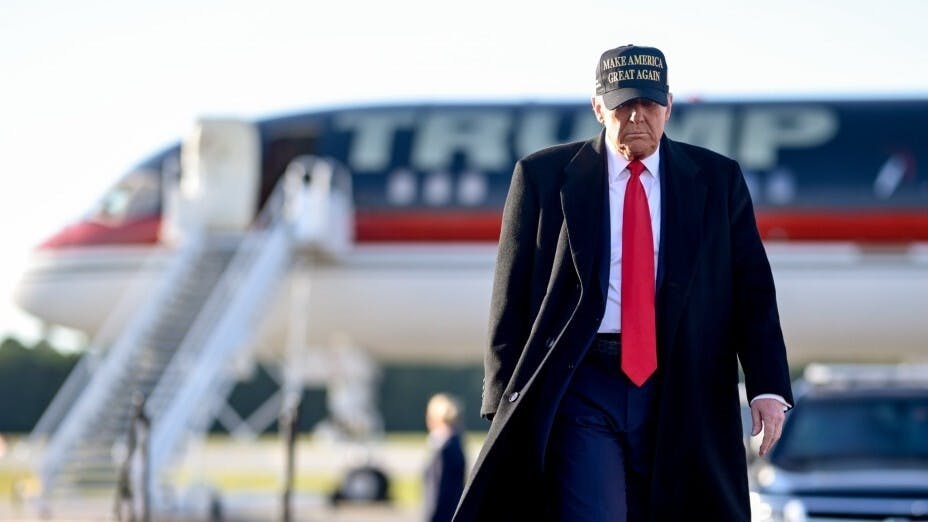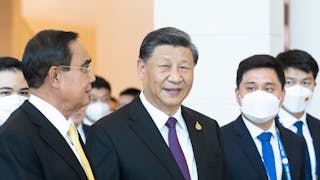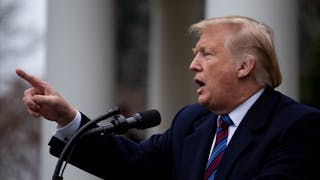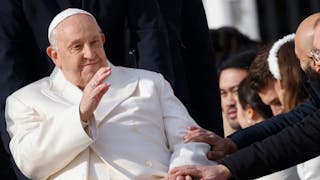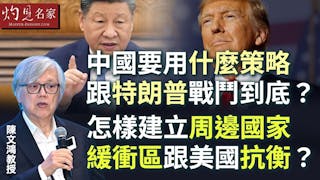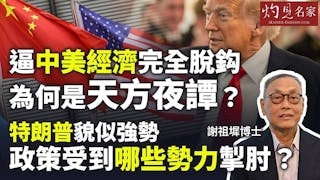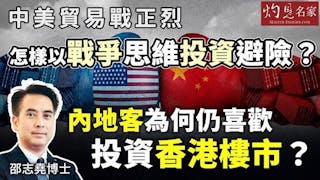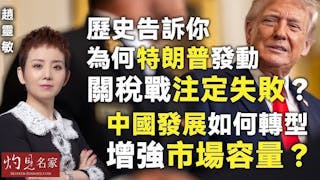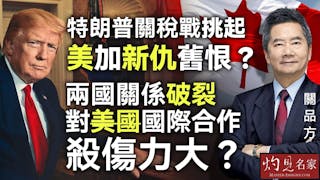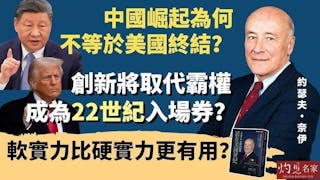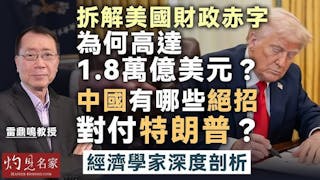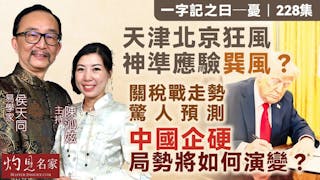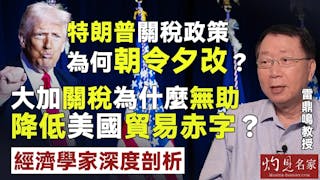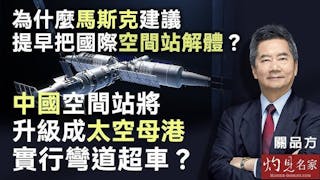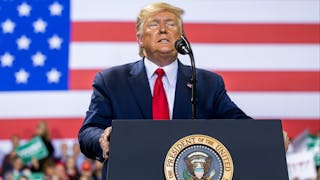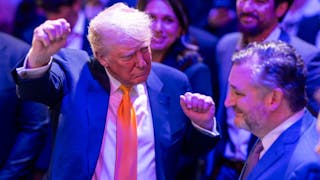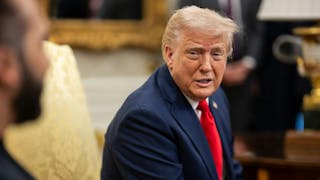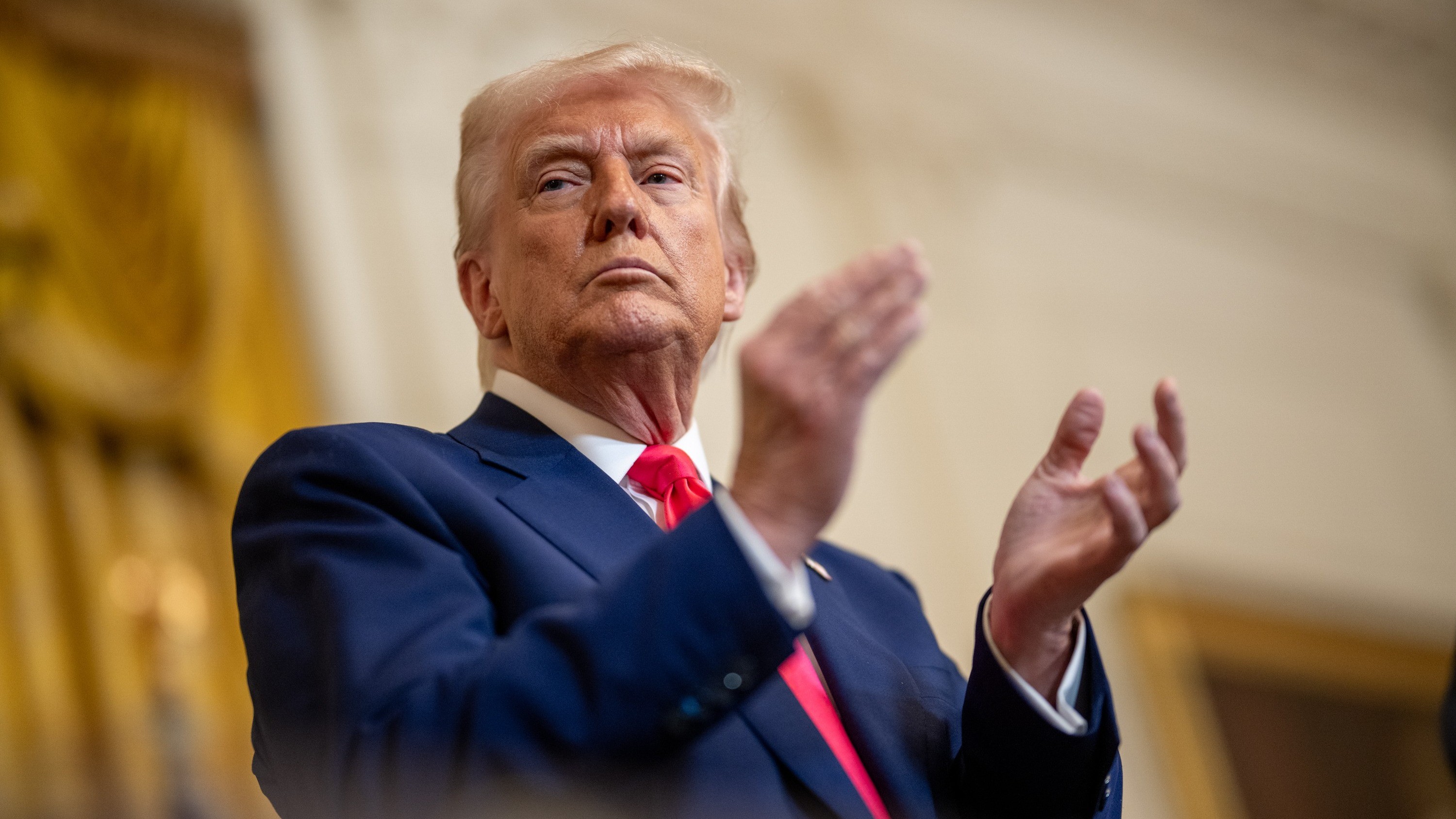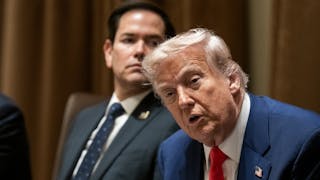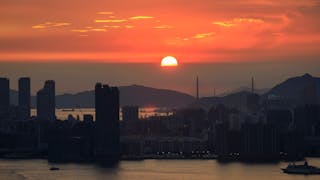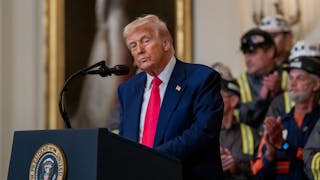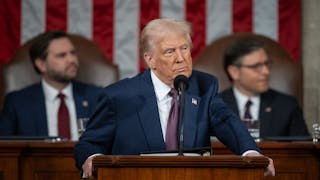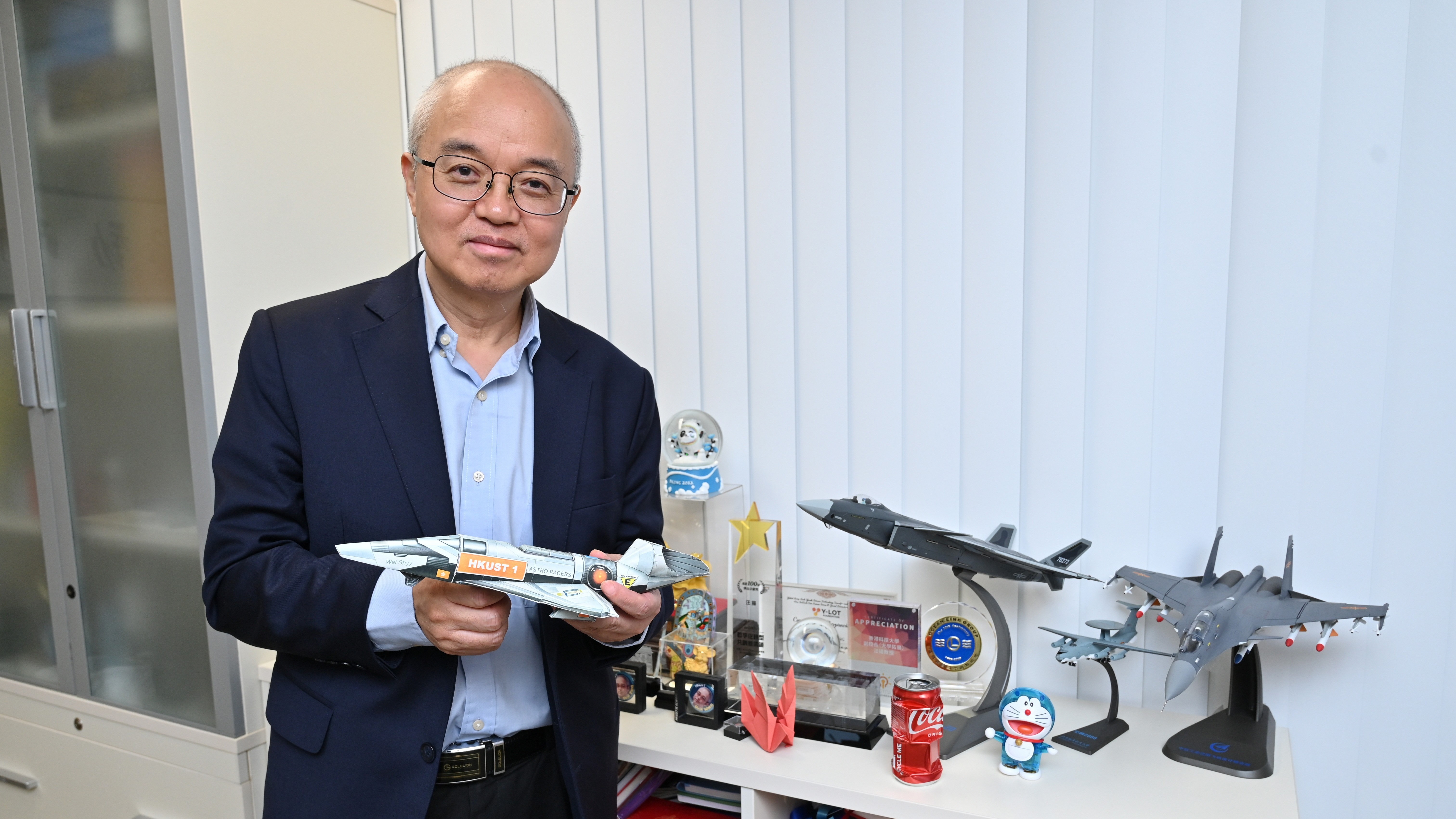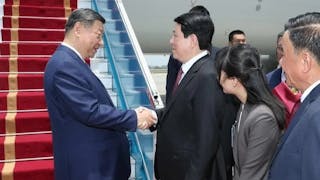美國前總統特朗普的勝利復出,讓人們期待能否帶來有利世界和平的外交政策,但隨着以黎衝突持續、烏克蘭戰爭、北韓對南韓的軍事威懾,以及中菲在南海的局勢迅速惡化,那些渴望特朗普復出帶來的的美好願景,或許充滿不切實際的期望。
針對2023年10月哈馬斯的襲擊,以色列的軍事報復行動已經由加沙擴大至真主黨武裝分子的根據地南黎巴嫩,而且戰鬥仍在艱苦地進行中。至今年10月1日,伊朗向以色列發射飛彈,報復其對真主黨領導人納斯魯拉的斬首行動,中東戰爭進一步升級,局面有失控之慮。
針對中東戰亂,特朗普新政府能否遏制以色列民族主義和軍事專斷的領導層,並且任命特使穿梭於中東不同利益攸關方之間,以達成至少停火的目標?以色列決心自行在加沙開闢緩衝區,捍衛自身領土安全和國家利益。然而,此舉給許多加沙居民帶來了苦難,事態發展將對該地區產生深遠的地緣政治、經濟和軍事影響。
迅速解決烏克蘭危機 特朗普說易行難
為早日解決烏克蘭危機,媒體傳出特朗普政府計劃在俄烏之間建立一個800英里的非軍事緩衝區,但這樣做不僅需要烏克蘭放棄克里米亞以外的烏東大部分領土,而且還會讓俄羅斯在戰爭中取得勝利。烏克蘭除了保持克制、不加入北約之外,是否願意接受緩衝區的安排?這樣的解決方案必然會遭到烏克蘭領導階層中的民族主義者所拒絕。特朗普聲稱他將迅速解決危機,似乎說易行難。
此外,朝鮮領導層向俄羅斯庫爾斯克派遣軍隊外,最近還頻繁試射飛彈,並宣稱南韓為「永遠的敵人」,導致朝鮮半島擦槍走火風險急升。要知道,特朗普於2019年與金正恩的美好時光早已一去不復返。即使特朗普新政府能夠找到解決烏克蘭危機的方案,朝鮮半島局勢升溫,已經危及東北亞的安全。
更糟糕的是,菲律賓最近在其聲稱擁有主權的南海島嶼上採取強硬的法律、海事和民族主義舉措激怒了中國。菲律賓政府鼓動民族主義去抗衡中國的底氣,寧願犧牲中菲之間的經濟利益,背後支持似乎來自美國,希望特朗普新政府能夠遏制菲律賓日益高漲的民族主義,否則未來幾年中菲爆發軍事衝突並非不可能。
特朗普作為一位高度民族主義、保守派和共和黨的領導人,無疑將透過推行經濟保護主義和地緣政治霸權主義的雙重原則來堅持他的原則,讓美國變得偉大。然而,經濟保護主義必然會惡化中美關係,而霸權主義不僅會疏遠許多發展中國家,還會疏遠俄羅斯等專制國家,以及北韓和中國等社會主義國家。如果真是這樣,那些因特朗普政治復出而渴望世界和平的觀察家無疑是天真的。
二戰後美國被世界多國視為霸權
第二次世界大戰期間,美國擊敗軸心國,成為世界救世主,贏得了許多國家的民心。其後,美國被世界上很多國家視為霸權,並與蘇聯的軍事較量中取得最終的勝利。隨着蘇聯瓦解垮台,美國與世界上許多國家度過了短暫的蜜月期,直到俄羅斯、中國、伊朗等國家的迅速崛起,並且挑戰美國主導的單極世界,推動多極世界。
在這場美國推動單極與經濟和軍事大國崛起的權力鬥爭中,特朗普在第一個任期內推動的美國經濟保護主義,未能贏得許多盟友以外的國家的認同。儘管美國保持了硬實力,但軟實力卻迅速下降。美國領導人拒絕承認其追求霸權,但美國霸權觀念已在許多國家,特別是發展中國家領導人中根深蒂固。
隨着特朗普重新入主白宮,他和其顧問、智囊團必須想清楚要創造一個什麼樣的美國、什麼樣的世界。美國作為唯一超級大國的單極時代,美好的時光已經一去不復返了。若是維護世界和平與秩序,與世界其他國家在意識形態和軍事上求同存異是有其必要。
如果特朗普政府熱衷於恢復美國作為世界偉大國家的地位,就必須透過包容意識形態差異來改革和恢復其軟實力,最大限度地減少自身的經濟保護主義,但這會損害了許多美國消費者的實際利益。
總言之,特朗普政府與其喋喋不休緬懷「讓美國變得偉大」(Make America Great Again)的主題,不如重新思考,它究竟希望創造的是什麼樣的美國和面對的是什麼樣的世界。他必須將世界和平視為所有國家的最終願景 ,否則僅採取意識形態霸權、經濟保護主義、政治挑釁的做法,無助於化解正岌岌可危的國際外交形勢,美國的願景和使命,是避免當前危機演變成第三次世界大戰。
Is Trump’s comeback creating false expectations on world peace?
As a military superpower under the challenges of newly rising powers in the present world, the victorious comeback of Donald Trump as the next US president has generated expectations as to whether his new administration would bring about a US foreign policy conducive to world peace.
Nevertheless, amid a dangerous era characterised by the ongoing Israel-Lebanon conflicts, the Ukrainian crisis, North Korean military assertiveness vis-à-vis South Korea, and Sino-Philippines tensions over reefs in the South China Sea, those people who are yearning for world peace under the Trump comeback are perhaps imbued with unrealistic expectations mainly because of rapidly deteriorating international politics.
Donald Trump and his new administration will find it extremely difficult to deal with the Israeli retaliation against the Hamas attack on Israel in October 2023 – an event that has spread to military operations in Gaza but also to southern Lebanon, where Hezbollah militants are being targeted. On 1 October 2024, since Iran fired missiles against Israel in retaliation for the Israeli action against Hezbollah leader Hassan Nasrallah in Beirut, the war in the Middle East has pointed to an increasingly uncontrollable scenario.
Under these circumstances, it is doubtful whether the new Trump administration will be able to rein in the nationalistic and militarily determined leadership in Israel on the one hand, and to appoint a special envoy to go between different stakeholders in the Middle East to reach at least a ceasefire.
Israel is determined to carve out a buffer zone in Gaza by itself to defend its own territory and national interests. Doing so, however, has resulted in the pain and suffering of many ordinary people in Gaza – a tragic development that is going to have profound geopolitical, economic, and military impacts on the region.
On the other hand, anti-Israeli sentiment has grown in Europe, notably in the Netherlands, as Israeli football fans recently became targets of attack.
If ultranationalism constitutes a main factor in shaping conflicts among all stakeholders in the Middle East, it would be a difficult ideological obstacle for any special envoy to search for a settlement acceptable to all parties in the short and medium term.
The new Trump administration will have to engage in a self-critical rethink of what kind of America it really wishes to create, and what kind of world the US is facing. Instead of being nostalgic and harping on the theme of making America “great,”
The Ukrainian crisis appears to show a glimpse of hope if the Trump administration is going to, according to recent reports, create an 800-mile buffer zone between Ukraine and Russia. However, doing so would necessitate not only Ukraine abandoning a large part of its territory in Donbas, apart from Crimea, but also Russia’s victory in the war. Would Ukraine be willing to accept such a buffer zone in addition to exercising restraint by not joining NATO? Such a solution would require Ukraine to accept military defeat – a proposal that is bound to be rejected by nationalists within the Ukrainian leadership.
As such, the Ukrainian crisis remains a hard nut to crack. Trump’s claim that he would settle the crisis quickly appears to be easier said than done, given the realities of ultranationalism on both sides of the Ukraine-Russia divide.
Furthermore, in addition to sending North Korean military forces to Kursk, the North Korean leadership has recently viewed South Korea as a “permanent enemy.” The frequent testing of North Korean missiles is also a dangerous act prone to military accidents on the Korean peninsula. The recent disputes over drones flying from South Korea to North Korea, and over balloons carrying rubbish from North Korea to South Korea, have plunged the two Koreas into a renewed tense atmosphere.
As such, the good old days of Donald Trump’s meeting with Kim Jong-un in 2019 have long gone. Even if the new Trump administration were able to find solutions to tackle the Ukrainian crisis, the increasingly tense relations between North Korea and South Korea are endangering peace and security in Northeast Asia.
Ideally, the new Trump administration should appoint a special envoy to address the tense relations between the two Koreas.
Ideally, China could be utilised by the US as a middleman to deal with not only tensions on the Korean peninsula but also the Ukrainian crisis; unfortunately, it is anticipated that the US government under a second Trump leadership will likely increase tariffs on Chinese products, escalating the trade war with China and worsening US-China relations, at least in the short and medium term. If so, China’s utility as an intermediary in the Korean peninsula tensions and the Ukrainian crisis will be stifled. Seeing itself as the foremost superpower in the world, the US will be unlikely to give leeway for China to intervene as a go-between in international political crises.
Adopting an ideologically hegemonic, economically protectionist, and politically defiant approach will by no means be conducive to a diplomacy that will defuse world peace crises. The US has the vision and mission of averting the current global crises from spiralling into a path towards a Third World War.
Even worse, the most recent assertive legal, maritime, and nationalistic actions of the Philippines on its claimed islands in the South China Sea have infuriated China. The nationalistic leadership in the Philippines has appeared to rely on US support to confront China at the expense of its economic relations with Beijing. It is hoped that the new Trump administration will rein in nationalism within the leadership of the Philippines. Otherwise, a sudden military conflict between the Philippines and China would not be impossible in the coming years.
It can be argued that the current world order is marked not only by ultranationalism but also by the militaristic tendencies of many countries that see military action and force as indispensable in defending and advancing their national interests, territorial integrity, and national dignity.
Donald Trump, as a highly nationalistic, conservative, and Republican leader, will undoubtedly uphold his principles of making America “great” in the world by enforcing the dual principles of economic protectionism and geopolitical hegemonism. Yet economic protectionism is bound to worsen US relations with China, while hegemonism is destined to alienate not only many developing states but also authoritarian states like Russia and socialist states like North Korea and China. If so, those observers who yearn for world peace because of Trump’s political comeback would undoubtedly be naïve in their expectations.
During the Second World War, America became a saviour power in the world by defeating the Axis powers, winning the hearts and minds of many countries. However, gradually, the US was seen by more countries in the world as striving for hegemony, and its military rivalry against the former Soviet Union led to its ultimate triumph. With the downfall of the former Soviet Union, America, as the “greatest” country in the world, perhaps enjoyed a brief honeymoon period with many countries in the world, both developed and developing, until the rapid rise of Russia, China, Iran, and North Korea, which have been challenging the unipolar world dominated by the US and pushing for a multipolar world.
In this power struggle between the US’s push for unipolarity and the pressure for multipolarity by rising economic and military powers, American economic protectionism under Trump’s first leadership failed to win the hearts and minds of many countries in the world, except for US allies. American soft power has declined rapidly, even though the US maintains its hard power. Even though the US leadership refuses to admit that it pursues hegemony, such a perception of US hegemony has become deep-rooted and widespread among the leaders of many countries, especially the developing ones.
With the return of Donald Trump to the US presidency, he and his advisers and think tanks must ponder what kind of US, and what kind of world, they want to create. The good old days of unipolarity with the US as the sole superpower have gone. If so, peaceful coexistence with other countries in the world, both ideologically and militarily, is and will be necessary for the sake of maintaining world peace and order.
If the new Trump administration is keen to restore the US as the “great” country in the world, its soft power must be reformed and restored by accommodating ideological differences, minimising its own economic protectionism, which actually harms the interests of many American consumers, and adopting a far more diplomatic approach to handling international disputes rather than pointing fingers at others, like labelling China as the “originator” of Covid-19, as asserted arrogantly and publicly by Donald Trump during his first administration in 2020.
In conclusion, the new Trump administration will have to engage in a self-critical rethink of what kind of America it really wishes to create, and what kind of world the US is facing. Instead of being nostalgic and harping on the theme of making America “great,” Trump and his equally nationalistic advisers, secretaries, and foreign policymakers must see world peace as the ultimate vision and mission of all countries in the world – an ideal that earned the US so much respect from countries around the world shortly after the end of the Second World War. Otherwise, adopting an ideologically hegemonic, economically protectionist, and politically defiant approach will by no means be conducive to a diplomacy that will defuse world peace crises. The US has the vision and mission of averting the current global crises from spiralling into a path towards a Third World War.
原刊於澳門新聞通訊社(MNA)網站,本社獲作者授權轉載。(原文按此)



